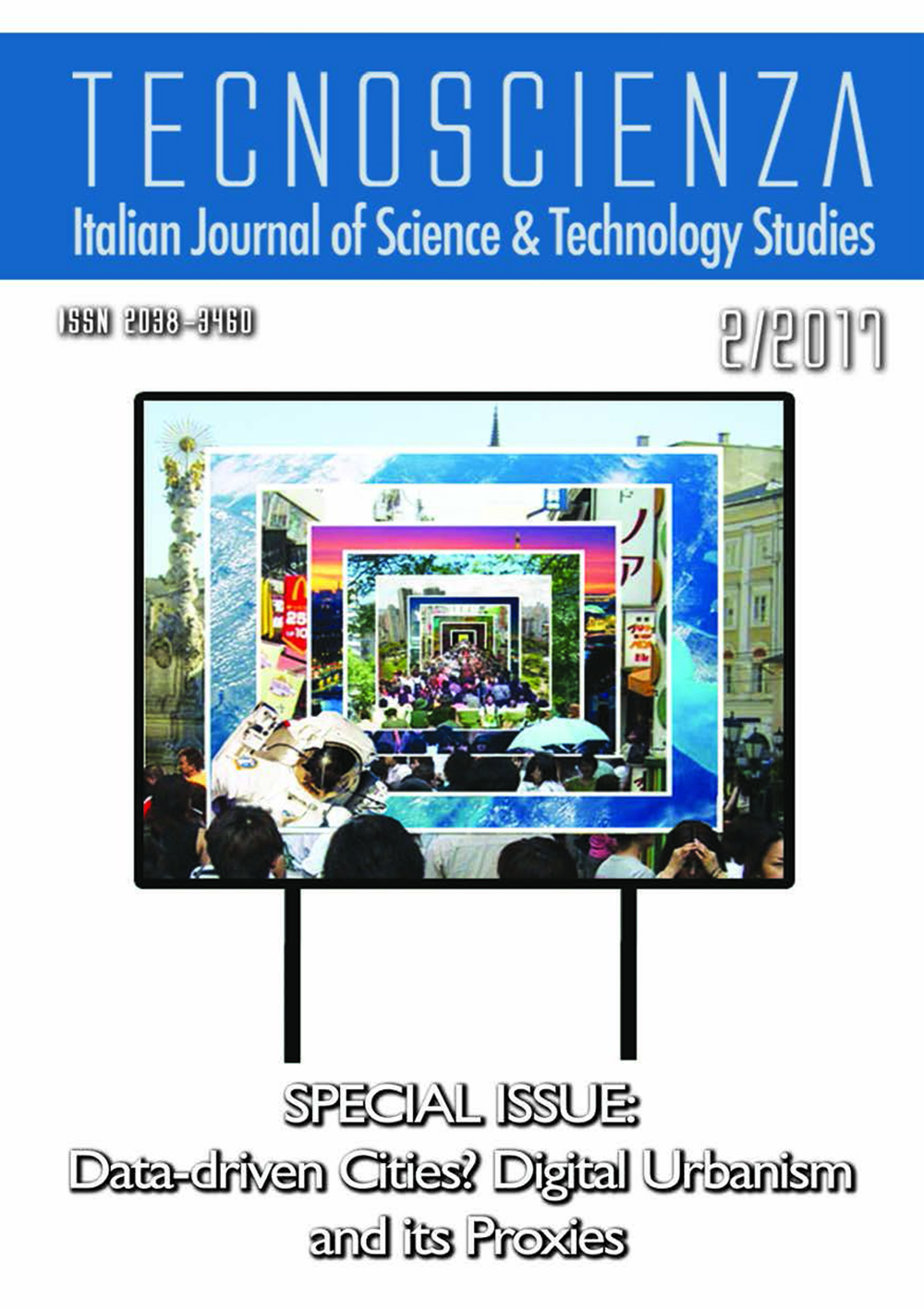Ordinary Smart Cities. How Calculated Users, Professional Citizens, Technology Companies and City Administrations Engage in a More-than-digital Politics
DOI:
https://doi.org/10.6092/issn.2038-3460/17371Keywords:
smart urbanism, (cosmo)politics, users, post-demographics, citizensAbstract
The "smart city" is likely one of the most unbearable current policy discourses and frameworks not just due to its technological determinism. Hence we are interested in exploring alternative narratives on "smart cities" by proposing two main "moves" from conventional perspectives. The first one involves considering a wider range of actors and logics than those usually considered in descriptions of smart cities. This does not just imply paying attention to grassroots organizations and private tech companies that develop datadriven urban services outside the conventional smart city programs run by municipalities, but also taking seriously the various non-digital logics and concerns that articulate or collide with smart city projects. The second move directly derives from the first one, as it proposes to go from a narrow focus on smart governmentality to a broader understanding on the (cosmo)-politics of smart urbanism. We examine these moves in the light of two quite different instances of smart urbanism: a service for urban exploration offered by the tech company Foursquare and a smart city project implemented by the municipality of Munich. Following the political trajectories of these two cases of smart urbanism, we underline the more-than-governmental and more-than digital logics that intervene in the making of ‘ordinary’ smart cities.





